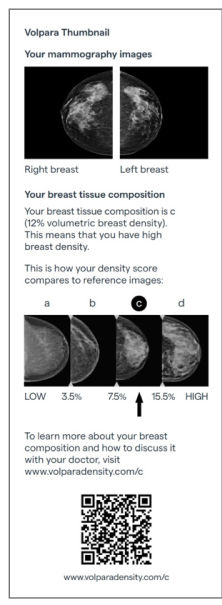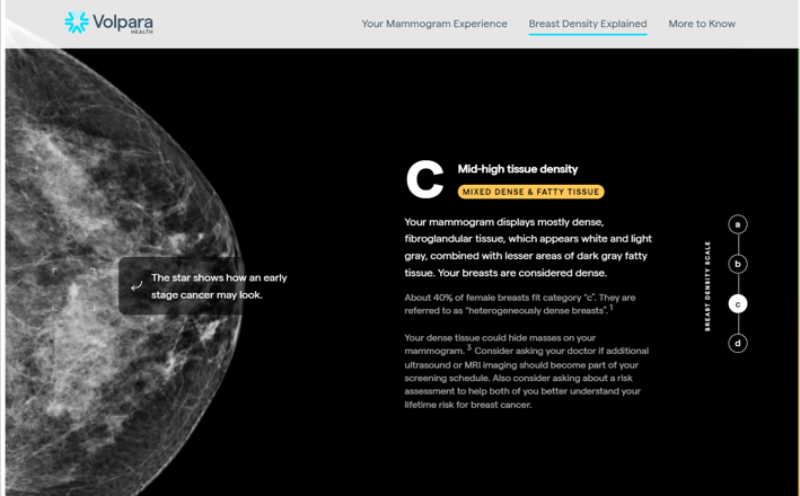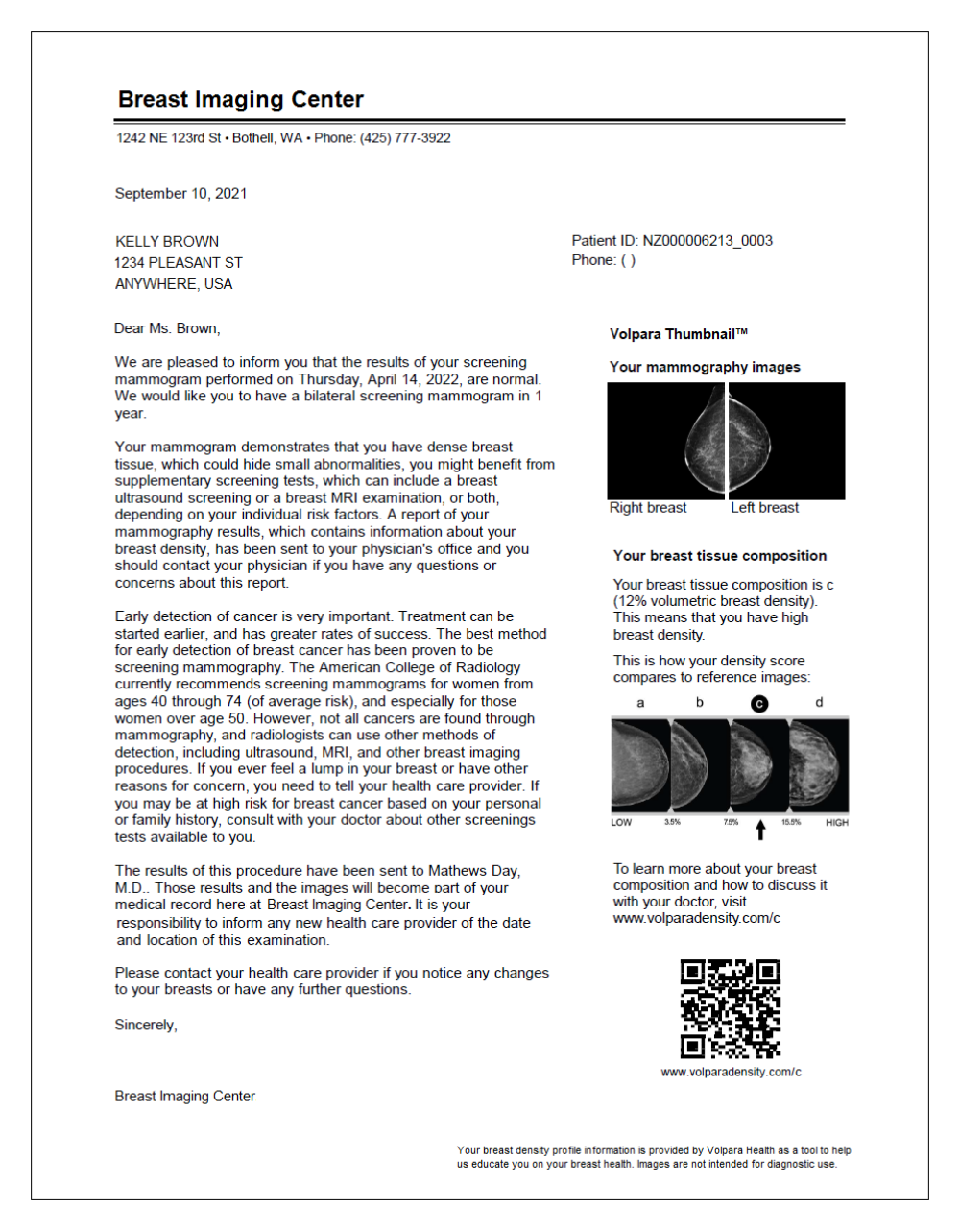Seeing is Believing
Read about how Volpara Thumbnail has helped Southtowns Radiology take breast density education to the next level.
“Most patients want access to medical images, but majority aren’t getting it.”
– Radiology Business, July 2022
What’s included in the Volpara Thumbnail module?

Two non-diagnostic mammogram images from patient exam – one of each breast
Percentage of breast tissue that is dense
Reference images to show where patient’s breast density falls within the BI-RADS a, b, c, d categories. Arrow indicates where density sits within the range for that category on a continuous scale
Link and QR code to an educational website for additional learning about breast density
Only patients with a normal result will receive the Volpara Thumbnail.
Knowledge is power
Dense breast risks
- Breast density has been identified as the most common risk factor for breast cancer.¹
- Women with dense breats may be 4-6x more likely to get breast cancer.²
- Up to fifty percent of women have dense breast tissue.³
- Dense tissue can both appear white on a mammogram, which can hide cancer.¹

Inform and Educate
Empower patients to learn more on an interactive website that provides more detail on their density category, why its important and what medical recommendations may be appropriate for further discussion.

Are you ready to enhance your mammography report letters?
- CDC.gov – https://www.cdc.gov/cancer/breast/basic_info/dense-breasts.htm#:~:text=The%20breasts%20are%20almost%20entirely,about%2010%25%20of%20women.
- Engmann NJ, et al, JAMA Oncol. 2017;3(9):1228-1236.
- CDC.gov – https://www.cdc.gov/cancer/breast/basic_info/dense-breasts.htm#:~:text=Dense%20tissue%20can%20hide%20cancers,small%20tumor%20may%20be%20missed.
You may be interested in…
Radiology Business
Most patients want access to medical imaging records, but majority aren’t getting it: Small survey
Science Direct
A letter is not enough: Women’s preferences for and experiences of receiving breast density information
Radiology Today
Engaging Women With Enhanced Mammography Letters

